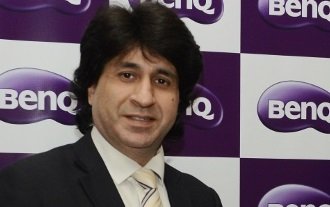Gaming PCs are increasingly relevant today, driven by technological trends including the emergence of video game streaming, popularity of HD and UHD monitors and even virtual reality as a means of enhancing and expanding interactive entertainment. According to a Global Games Market report issued by Newzoo in April this year, 2.2 billion gamers across the globe are expected to generate $108.9 billion in game revenues, with the PC market claiming $29.4 billion.
Overall, the gaming sector in the region is growing faster than the global average, even outpacing Russia, China and South Korea, according to data collected by Abu Dhabi’s media free zone authority. The study goes on to add that this number is expected to triple in size by 2022 reaching around USD4.4 billion.
A number of factors have contributed to this exponential growth, one of them being serious interest from the gaming community who are keen to represent the region in global level competitions. On top of this there are a number of gaming events being organized in the region itself such as eSports leagues and tournaments where influencers, fans and gamers come together to play the latest games.
Today more and more console players are moving to the PC because playing on a gaming PC gives a richer experience.

Middle East Africa & SE Asia at WD
Khwaja Saifuddin, Senior Director – Sales, Middle East Africa & South East Asia at WD, emphasizes that the main reason for the growth of PC gaming industry is centred around the gamer’s experience. “The typical gamer never compromises on price of the hardware, be it his keyboard, mouse, GPU, processor, hard drive/SSD, etc. For the true gamer, it is all about the experience and taking it to higher levels,” explained Saifuddin.
“Middle East is a growth region for Lenovo and by launching products like Legion we are committed to bringing immersive experiences to local consumers that drive their passion for PC gaming. For its gaming segment, Lenovo is heavily concentrating on the Kingdom and UAE,” said Mohammed Hilili, General Manager, Lenovo Gulf & KSA.
For MSI, Saudi is one of the biggest markets, followed by UAE, Kuwait, and Iraq that have shown significant growth in the past year. Haowen Yang, Marketing Manager at MSI feels that the gamers in this region are especially passionate about FPS (or First Person Shooter) games, particularly those where they can team up with their friends, such as in Battlefield series, Counter-Strike: Global Offensive, Rainbow Six and so on. “The regional gaming community is eager to reach higher levels of achievement and their success is reflected in the fact that these gaming teams are now getting active sponsorship from not just MSI, but other gaming brands as well,” continued Yang.

PC gaming is integral to BenQ’s operations and the company offers a wide range of monitors designed for serious gamers looking for an immersive experience. “The gaming economy is being driven by younger population and together with the advent of digital disruption, these have led to an increase in the gaming customer base. Within our XL-series, we have XL2546 model that is the World’s first 240HZ gaming monitor with DyAc and Shield. Such specialized products only are a statement to our confidence in this category,” added Manish Bakshi, Managing Director, BenQ – Middle East & Turkey.
Saifuddin adds that hard drives and SSDs are a critical component for the best gaming experience and hence WD gaming-specific products are a niche and critical component of our business. “Our WD Black Drives are specifically made for gaming and sports exceptional speed, huge capacity, high amount of cache and an architecture that the gamers need.”
While there is huge demand in the MENA region for all types of games starting with those played on consoles to the ones played on PCs, gaming laptops and high-end PCs have secured the industry’s confidence and not without cause. The PC gaming segment is even expected to surpass the already positive forecasts and is determined to prove to be a growing one for both gamers and service providers.

MSI experienced huge sales growth in its gaming laptop series, especially the high-end machines which Yang attributes to the launch of Nvidia GTX 10 series graphic card last year. “The GTX 10 series graphic card has improved performance by 40% compared to the older generation. It is a milestone for the whole gaming industry since the performance difference between PC and console has also increased.”
It is clear that gaming PCs are gaining popularity in the region, but a gaming PC has different specifications than a normal PC. So, what does this popularity mean for the reseller community and how can they ensure that they are able to leverage this demand?

“We train our resellers in order to really get to know our products. For example, a gaming PC has a higher end discrete GPU, which is the graphics card. A normal PC can’t deliver the high-end graphics processing that’s built into the CPU because games simply demand a high level of performance,” added Hilili.
In fact, a gaming laptop is not just about adding a powerful processor and graphics card to a laptop. Other aspects also need to be considered like its audio, performance, visuals, streaming, controls and so on.
“Retailers need to understand the benefits of every feature of the gaming product they want to sell. Knowing the difference between CPU and GPU, the importance of a cooling system, what the panel refresh rate needs to be, what a good gaming keyboard is – this is the basic knowledge that the reseller needs to possess and even this is far from being enough,” stated Yang.
It looks like PC gaming will hold its own amidst the developments. There are different kinds of games and gamers in the market and PC games have their separate niche and following, and they will continue to be major crowd pullers.











